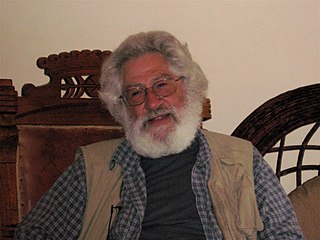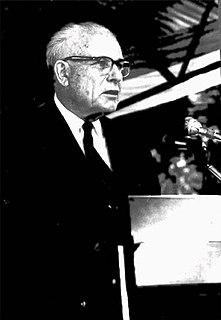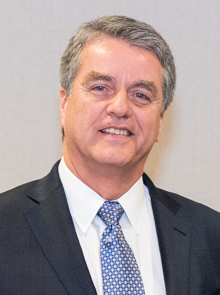A Quote by Ralph Abraham
In a dynamical system, or a massively complex dynamical system such as we live in, when there is a moment of bifurcation, which is the technical mass jargon for “the snap”, that is the only time you get to do anything about the evolution of the system. So according to this self-inflating view, we live at an especially important special moment in history where when we think something or do something it has actually an enormous effect on the future. What we do has some influence on the creation of the future more than at other times in history.
Related Quotes
No citizen of this nation is worthy of the name unless he bears unswerving loyalty to the system under which he lives, the system that gives him more benefits than any other system yet devised by man. Loyalty leaves room to change the system when need be, but only under the ground rules by which we Americans live.
In comparison to the U.S. health care system, the German system is clearly better, because the German health care system works for everyone who needs care, ... costs little money, and it's not a system about which you have to worry all the time. I think that for us the risk is that the private system undermines the solidarity principle. If that is fixed and we concentrate a little bit on better competition and more research, I think the German health care system is a nice third way between a for-profit system on the one hand and, let's say, a single-payer system on the other hand.
For our purposes, let’s say a goal is a specific objective that you either achieve or don’t sometime in the future. A system is something you do on a regular basis that increases your odds of happiness in the long run. If you do something every day, it’s a system. If you’re waiting to achieve it someday in the future, it’s a goal.
To be hopeful in bad times is based on the fact that human history is not only of cruelty, but also of compassion, sacrifice, courage, kindness. If we see only the worst, it destroys our capacity to do something. If we remember those times and places where people have behaved magnificently, this gives us the energy to act. And if we do act, in however small a way, we don't have to wait for some grand Utopian future. The future is an infinite succession of presents, and to live now as we think human beings should live, in defiance of all that is bad around us, is itself a marvelous victory.
To live in the universe of high modernity is to live in an environment of chance and risk, the ineveitable concomitants of a system geared to the domination of nature and the reflexive making of history. Fate and destiny have no formal part to play in such a system, which operates (as a matter of principle) via what I shall call open human control of the natural and social worlds.
For a long time growing up, I thought that everything happens for a reason and it's kind of already written. But as I've grown and learned various things, I think that the most important moment is the one that you're in, and that's the only moment that matters, that you can really control. The future is unknown, and the past is history.
The secret of health for both mind and body is not to mourn for the past, worry about the future, or anticipate troubles, but to live in the present moment wisely and earnestly. . . Live each moment completely and the future will take care of itself. Fully enjoy the wonder and beauty of each moment.
The 'public' has no history, has no future, lives in a golden moment created by credit, which binds them ineluctably to a fascist system that is never criticized. This is the ultimate consequence of having broken off this symbiotic relationship with the vegetable, feminine, maternal matrix of the planet.
We are seeing, then, that our experience is altogether momentary. From one point of view, each moment is so elusive and so brief that we cannot even think about it before it has gone. From another point of view, this moment is always here, since we know no other moment than the present moment. It is always dying, always becoming past more rapidly than imagination can conceive. Yet at the same time it is always being born, always new, emerging just as rapidly from that complete unknown we call the future. Thinking about it almost makes you breathless.
I teach you that there is no other aim than to live with such totality that each moment becomes a celebration. The very idea of "aim" brings future into the mind, because any aim, any end, any goal, needs future. All your goals deprive you of your present, which is the only reality you have. The future is only your imagination, and the past is just footprints left in the sands of your memory. Neither is the past real anymore, nor is the future real yet. This moment is the only reality.







































